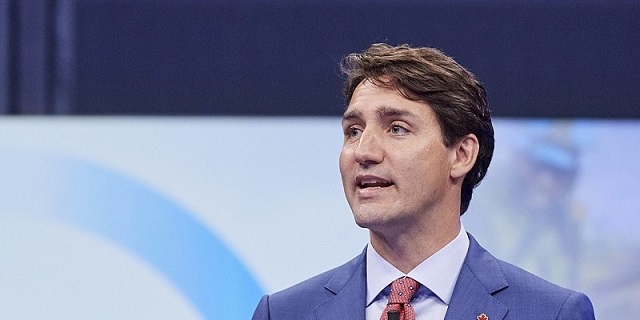Censorship Industrial Complex
Here’s what Canadians need to know about Trudeau’s proposed Online Harms Act
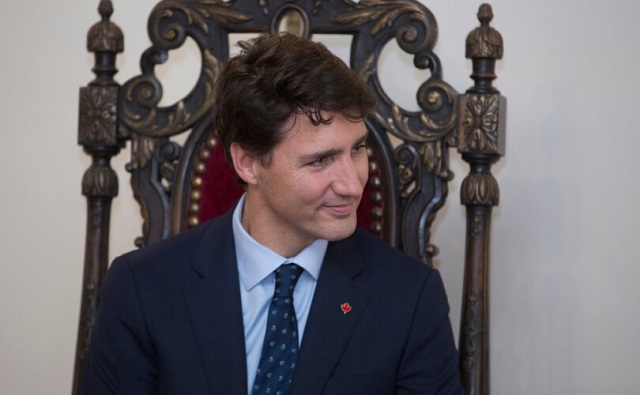
From LifeSiteNews
On this week’s episode of The Van Maren Show, Jonathon speaks with Andrew Lawton about Canada’s proposed Online Harms Act, why Christians and conservatives would be the primary targets, whether or not it can be defeated, and more.
Andrew Lawton joins Jonathon on this week’s episode of The Van Maren Show to discuss the Online Harms Act, Canada’s proposed internet “hate speech” law.
Lawton begins the show addressing the confusion surrounding Bill C-63, pointing out that it does contain things “sensible” people would support, such as provisions concerning child sexual exploitation and terrorist content. However, the bill treats “online hate” in the same way as child exploitation and terror, Lawton observes.
He states that the “hate” portion of the legislation is a reintroduction of section 13 of the Canadian Human Rights Act – something the previous Conservative government of Canada managed to get rid of in 2013. The reintroduced section, however, “supercharges” the original proposal’s language, giving the Human Rights Tribunal the ability to prosecute people for “hate speech” online and forcing social media companies to take down offending content.
“As anyone who’s paid any attention to these sorts of issues can tell you, this is just a recipe for disaster when you give government that authority to define and then to execute,” says Lawton.
He also addresses the “Orwellian” aspect of the bill, observing that it allows people to be prosecuted while they have yet to commit an offense. In other words, if someone suspects someone else of future “hate propaganda” or a future “hate crime,” then any Canadian, whether it be an average Canadian or the attorney general, can appear before a judge and argue that a would-be perpetrator be arrested.
Lawton also notes that sentencing for “hate motivated offenses” – any crime such as vandalism or murder that is motivated by “hate” – can carry a lifetime prison sentence rather than the normal criminal sentence. While people have responded to this worry by saying that judges won’t use that power, Lawton says he doesn’t “like legislation where the only guardrail against abuse is just, ‘Trust us.’”
The language used by the bill itself is broad, Lawton says, maintaining that its drafters have no concern for free speech issues. “Justice Minister [Arif Virani] … was asked about this, and his only justification for how is this going to protect free speech was, ‘Oh well, the law requires that we respect the Charter,’” Lawton notes. “Well, yeah, but that doesn’t mean you’re going to do it. It just means you’re supposed to do it.”
Lawton further addresses an apparent enforcement problem, saying he does not expect the law to be enforced the same way for someone who commits arson against a synagogue or mosque as for someone who commits the same crime targeting a church. Lawton observes that the “political class” treats these offenses differently, and he suspects that since the “judicial class” is appointed by the “political class,” then it will follow the former.
“Already there is a sense that this is not going to be protecting all groups equally,” Lawton opines.
“When you bring that into the speech realm … I don’t think that you’re right to make gender critical comments as a feminist, say, is going to be upheld as much as your right to make trans-friendly comments if you’re a trans activist. And I think right here we have the case of these administrative bodies, these tribunals that have to pick and choose the winners of whose free speech matters more than the other.”
When Jonathon asks Lawton if he suspects Prime Minister Justin Trudeau is pushing the legislation because of a potential Liberal defeat in the next election, Lawton responds by noting that Trudeau first tabled the legislation in 2021 the day before he dissolved Parliament and called for an election, suggesting that Trudeau believes in the legislation. He also believes that Trudeau sees it as a “political win.” He admits that this prospect unsettles him, observing that most are no longer likely to defend freedom of speech as they once did. Later in the episode, he also opines that criticism of the legislation will not stop Trudeau from pushing it.
Lawton further notes that “a lot of” Canadians have not given critical thought to the “edge cases of things that they care about,” observing that if one were to ask Canadians if they support free speech, most would answer positively, and that people would “generally agree” if they were asked if the government should regulate “hate speech.” The problem, he notes, is how to define “hate speech” and what it actually entails.
Lawton, looking at how the issue will pan out, believes that the bill will indeed pass one day, but he makes note of two issues. First, he says there is a question of what happens in parliamentary committee, stating that committees have a “significant role,” especially in minority governments. He says this has been made clear by parliamentary discussion on Medical Assistance in Dying (MAiD). What he would like to see happen is that the parties agree to split the bill in committee, one bill dealing with child sexual exploitation and the other dealing with “hate,” but suspects that there will not be opposition to it either way.
“The best that the Conservatives could hope for is some level of dilution in the committee stage, but it won’t be what it needs to be, which is just killing the bill outright,” Lawton suspects.
Should the bill pass, however, Lawton observes that regulations surrounding the legislation would still need to be written by the Canadian Human Rights Commission (CHRC), and that social media companies would have to respond to it. It would be in the Conservatives’ interest, he asserts, that it would not be fully implemented by the time of the next election, since it would be easier to undo it.
Further, Lawton says it would send a “chill” and that people will become “leery” of what they say, while others like himself will look at the CHRC and say “come at me,” and still others will not wish to deal with it. He once again points to the reaction of social media companies, however, and says that their response will be “fascinating,” given how Facebook blocked news in Canada rather than abide by government regulations.
Lawton closes the interview observing that the legislation targets speech that is “likely to foment detestation or vilification” of people based on a “prohibited ground of discrimination,” while offensive, disdaining, humiliating, hurtful, or speech expressing dislike, is allowed.
“What I would tell Canadians is that if you think that your speech at some point will not be targeted by this, you listen to that definition and tell me where the line is between disdain and detestation, or the line between dislike or vilification, and ask whether you trust the government to draw that line fairly,” he says.
Lawton adds that the fight against the bill is “winnable” and notes there is more discussion on the issue now than there was when it was last introduced, given events in Great Britain and Ireland over “hate speech” policy, and hopes that people in Canada don’t have to experience prosecution in order to know why the bill was a bad idea.
The Van Maren Show is hosted on numerous platforms, including Spotify, SoundCloud, YouTube, iTunes, and Google Play.
Censorship Industrial Complex
Jim Jordan Exposes Biden’s Censorship-Industrial Complex
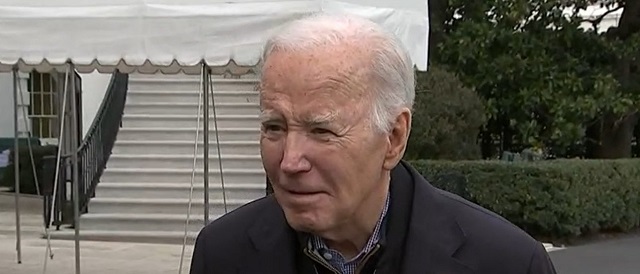
 From the Daily Caller News Foundation
From the Daily Caller News Foundation
By TOM HEBERT
“Internal talking points prepared by Amazon,” says the report, “included the question: ‘Is the [Biden] Admin asking us to remove books, or are they more concerned about search results/order (or both).’”
High-ranking Biden White House operatives coerced Big Tech companies into censoring posts critical of the Biden administration or those that spread so-called “misinformation” about COVID-19. A blockbuster new report from the House Judiciary Committee, which is chaired by Rep. Jim Jordan, exposes how the Biden administration weaponized Big Tech against conservatives.
“The report,” the committee said when it released it, “details the months-long campaign by the Biden White House to coerce large companies, namely Facebook, Google, and Amazon, to censor books, videos, posts, and other content online. By the end of 2021, Facebook, YouTube, and Amazon changed their content moderation policies in ways that were directly responsive to criticism from the Biden Administration.”
This report is the result of a multi-year investigation by the Judiciary Committee’s Select Subcommittee on the Weaponization of the Federal Government. The evidence, including tens of thousands of emails and other non-public documents, shows a disturbing pattern of Biden officials pressuring Big Tech companies into censoring Americans online.
Shortly after Biden’s inauguration in 2021, then-White House Digital Director Rob Flaherty began haranguing top Facebook officials for more detail on their policies for taking down COVID-19 related posts. “In February 2021,” says the report, “Facebook increased its censorship of anti-vaccine content as well as the lab leak theory of the origin of the virus because of ‘tense conversations with the new [Biden] Administration’ and as part of an effort to be responsive to the Biden White House’s exhortations to ‘do more’ to combat alleged misinformation.”
As 2021 progressed, the White House demanded to know what Facebook was doing to censor “borderline content,” posts that did not violate Facebook’s content moderation policies but were nevertheless objectionable to Biden officials. “Facebook would meet again with the Biden White House on March 12, 2021, to discuss how it was approaching ‘borderline content,’ that is, content that did not violate its policies,” says the report.
“Facebook walked through its policies and enforcement practices for violative and borderline content,” it says. “But call notes reveal that throughout the meeting, Flaherty continued to ask about the removal and reduction of content above all else.”
Unsatisfied with Facebook’s unwillingness to “play ball,” Flaherty and the White House played hard ball. On July 16, 2021, a reporter asked Biden: “On Covid misinformation, what’s your message to platforms like Facebook?” Biden responded: “They’re killing people.”
In response to the intense pressure from the White House, Facebook went on to change their content moderation policies and censored posts about vaccine hesitancy and the lab-leak theory.
Facebook was not the only social media platform that Biden officials pressured. In April 2021, Flaherty reached out to YouTube with a litany of questions about YouTube’s efforts to censor borderline content. “Flaherty’s email was particularly focused on how YouTube handled non-violative ‘borderline’ content,” says the report. “These requests were prefaced by stating the Biden White House wanted ‘to be sure that you have a handle on vaccine hesitancy generally and are working toward making the problem better’ and that this ‘is a concern that is shared at the highest (and I mean highest) level of the [White House].’”
After Flaherty succeeded in making YouTube change its content moderation policies “to remove content that questioned the safety or efficacy of COVID-19 vaccines,” other Biden bureaucrats started to pester YouTube employees to clamp down on other content. In March 2022, according to the committee report, former Biden advisor Tim Wu asked for a meeting with Google employees to discuss “Russian misinformation/disinformation” and “airline competition.”
Another staffer communicated with YouTube about abortion-related content. “On July 14, 2022, YouTube Government Affairs staff contacted White House personnel to brief them on ‘updates related to addressing reproductive health misinformation on YouTube,’ to which White House staff responded, saying that they were ‘specifically interested in abortion,’” said the report.
Biden officials clearly sought to censor content they perceived as politically damaging to Biden.
The report also shows the White House’s obsession suppressing books that they disagreed with. In March 2021, the Biden White House emailed an Amazon executive “asking to have a discussion regarding the ‘high levels of propaganda and misinformation and disinformation at Amazon.’”
“Internal talking points prepared by Amazon,” says the report, “included the question: ‘Is the [Biden] Admin asking us to remove books, or are they more concerned about search results/order (or both).’”
There are two important takeaways from this report.
One, the Biden administration sought to impose a censorship regime through Big Tech to benefit the president politically.
Two, Congress should act to prevent future government-directed censorship of American speech. There are numerous bills that would address this problem. The House passed the “Protecting Speech from Government Interference Act” last year, legislation that would ban bureaucrats from advocating for censorship of viewpoints. The “Free Speech Protection Act” imposes penalties on bureaucrats who censor speech, and the “Censorship Accountability Act” would allow Americans to sue bureaucrats who violate their First Amendment rights.
The Biden administration has displayed an appalling amount of contempt for American free speech. Exposing Biden’s censorship-industrial complex is an important first step toward ensuring that unelected bureaucrats do not have a veto over what we say online.
Tom Hebert is Director of Competition and Regulatory Policy at Americans for Tax Reform and executive director of the Open Competition Center.
Censorship Industrial Complex
Quebec court greenlights class action suit against YouTube’s COVID-related content censorship
From LifeSiteNews
The lawsuit, led by video blogger Éloïse Boies, argues YouTube violated freedom of expression under the Charter of Human Rights and Freedoms by censoring COVID-related content.
A class action lawsuit against YouTube’s censorship of COVID-era speech on the platform has been allowed to proceed in Canada.
The primary plaintiff in the case which has now been greenlit by the Quebec Superior Court is YouTuber Éloïse Boies, while the filing accuses the Google video platform of censoring information about vaccines, the pandemic, and the virus itself.
A copy of the order can be found HERE.
READ: Elon Musk skewers Trudeau gov’t Online Harms bill as ‘insane’ for targeting speech retroactively
Boies, who runs the “Élo Wants to Know” channel, states in the lawsuit that three of her videos got removed by YouTube (one of the censored videos was about… censorship) for allegedly violating the website’s policies around medical disinformation and contradicting World Health Organization and local health authorities’ COVID narratives of the time.
However, the content creator claims that the decisions represented unlawful and intentional suppression of free expression. In February, Boies revealed that in addition to having videos deleted, the censorship also branded her an “antivaxxer” and a “conspiracy theorist,” causing her to lose contracts.
The filing cites the Charter of Human Rights and Freedoms as the document YouTube violated, while the class-action status of the lawsuit stems from it including any individual or legal entity in Quebec whose videos dealing with COVID got censored, or who were prevented from watching such videos, starting in mid-March 2020 and onward.
Google, on the other hand, argues that it is under no obligation to respect the Charter of Human Rights and Freedoms, and can therefore not be held accountable for decisions to censor content it doesn’t approve of – or as the giant phrased it, provide space for videos “regardless of their content.”
But when Superior Court Judge Lukasz Granosik announced his decision, he noted that freedom of expression “does not only mean freedom of speech, but also freedom of publication and freedom of creation.”
Stressing the importance that Canada’s Supreme Court assigns to guaranteed freedom of expression as a key building block in a democratic society, the judge concluded that “If (Google) carries out censorship by preventing certain people from posting videos and prevents other people from viewing these same videos, it thus hinders the free circulation of ideas and exposes itself to having to defend its ways of doing things.”
Google was ordered to stop censoring content because it contradicts health authorities, WHO, or governments, pay $1,000 in compensation, and $1,000 in punitive damages to each of the lawsuit’s plaintiffs, as well as “additional compensation provided for by law since the filing of the request for authorization to take collective action, as per the court’s decision.”
As for those who were prevented from accessing content, the decision on damages will be the subject of a future hearing.
Reprinted with permission from Reclaim The Net.
-

 Economy1 day ago
Economy1 day agoFeds spend $3 million to fly 182 politicians and bureaucrats to climate conference
-
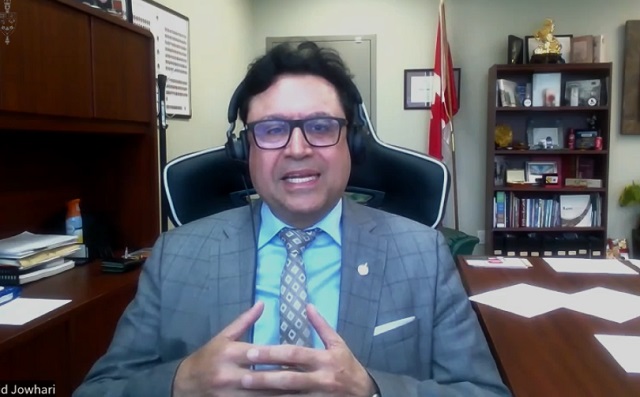
 Addictions18 hours ago
Addictions18 hours agoLiberals shut down motion to disclose pharma payments for Trudeau’s ‘safe supply’ drug program
-

 espionage12 hours ago
espionage12 hours agoThe Scientists Who Came in From the Cold: Canada’s National Microbiology Laboratory Scandal, Part I
-

 Energy9 hours ago
Energy9 hours agoTech giants’ self-made AI energy crisis
-

 Energy1 day ago
Energy1 day agoNew Report Reveals Just How Energy Rich America Really Is
-

 Automotive1 day ago
Automotive1 day agoBiden’s Climate Agenda Is Running Headfirst Into A Wall Of His Own Making
-
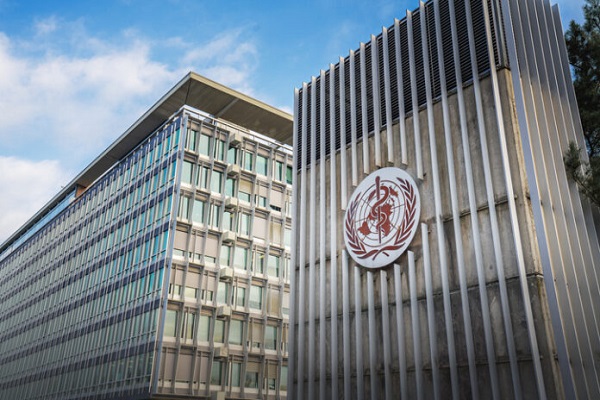
 Great Reset1 day ago
Great Reset1 day agoBiden Administration Eager to Sign WHO Pandemic Treaty
-

 Economy1 day ago
Economy1 day agoCanadians experiencing second-longest and third steepest decline in living standards in last 40 years



